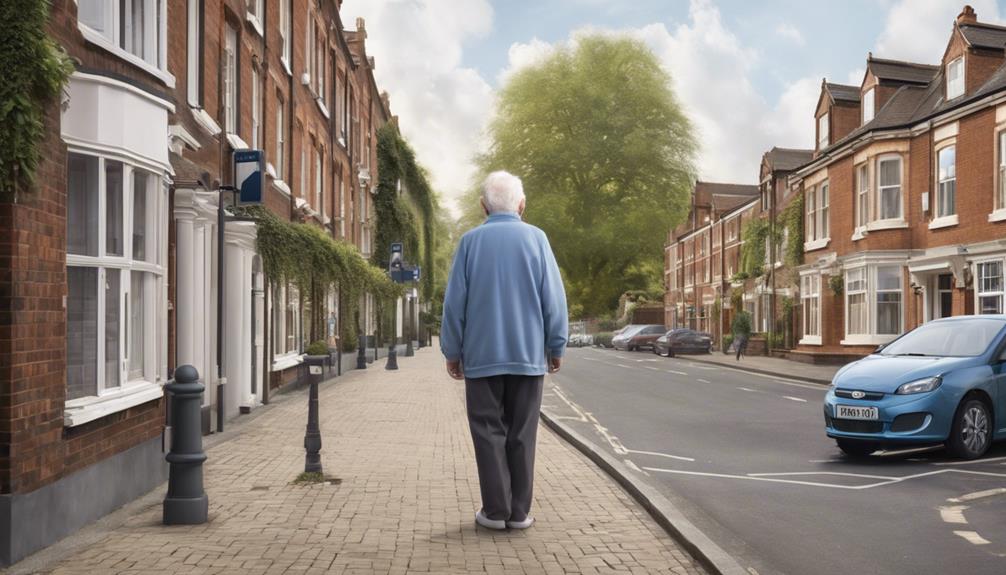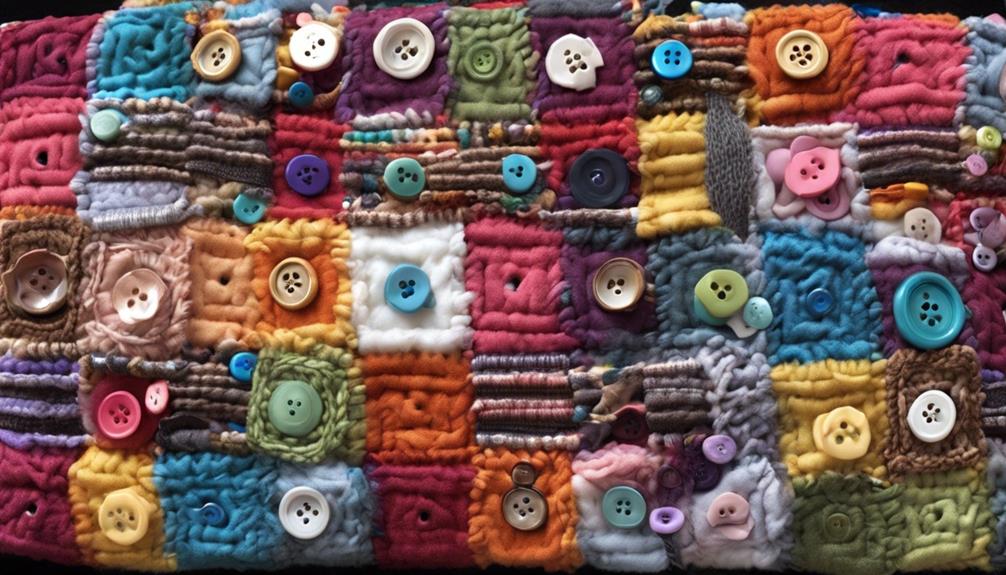It is normal to feel worried about moving a loved one with dementia to a care facility due to the challenges in making this decision. It is important to be aware of the signs that suggest extra help might be needed.
From ensuring safety to managing daily tasks, numerous factors come into play when determining the right time for this transition.
Stay tuned to discover the key considerations that can guide this important decision-making process.
Key Takeaways
- Assess caregiver burnout signs
- Involve family in decision-making
- Prioritize caregiver's well-being
- Seek professional guidance when needed
Caregiver's Well-Being and Capabilities
Recognizing the challenges caregivers face in managing the care of a loved one with dementia is essential in determining when transitioning to a care home may be the best decision for both the caregiver and the individual with dementia. Caregivers' well-being is paramount in this decision-making process. The demands of caring for someone with dementia can lead to caregiver exhaustion, stress, and distress. Assessing caregivers' capabilities to cope with these demands is crucial. If a caregiver is experiencing burnout or struggling to meet the care demands, additional support provided by a care home can be beneficial.
It's important to acknowledge the signs of caregiver distress, such as feeling overwhelmed or unable to cope. Prioritizing the caregiver's well-being isn't only necessary for their own health but also for providing the best care for the individual with dementia. Transitioning to a care home should be considered if the caregiver finds that providing care has become unmanageable. Supporting caregivers in coping with care challenges is a compassionate approach that benefits both the caregiver and the person with dementia.
Safety and Supervision Concerns

As caregivers navigate the challenges of managing the care of a loved one with dementia, ensuring safety and supervision becomes increasingly crucial as the condition progresses. The safety concerns, such as wandering and forgetting daily tasks, can indicate the need for a care home where round-the-clock monitoring is available. The inability to recognize danger and forgetting emergency procedures can lead to accidents and injuries, highlighting the necessity of a secure environment with trained staff in a care home setting. Specialized support in these facilities addresses the escalating supervision needs as dementia advances, offering peace of mind to families and ensuring the well-being of their loved ones. Making the decision to transition to a care home involves recognizing these safety and supervision concerns, ultimately prioritizing the individual's safety and quality of life.
| Safety Concerns | Need for Care Home | Benefits of Transition |
|---|---|---|
| Wandering | Round-the-clock monitoring | Secure environment |
| Forgetting tasks | Trained staff | Specialized support |
| Increased accidents | Supervision requirements | Injury prevention |
Behavioral Changes and Agitation
Experiencing behavioral changes and agitation in a loved one with dementia can be a challenging and distressing situation that may indicate the need for transitioning them into a care home. When faced with these difficult behaviors, it's essential to consider the well-being and safety of both the individual with dementia and their caregivers.
- Safety Risks: Agitation and aggression in dementia patients can pose safety risks to themselves and those around them, necessitating a higher level of care that a specialized facility can provide.
- Caregiver Support: Managing behavioral changes in dementia patients can be overwhelming for caregivers, impacting their own well-being and family dynamics. Care home support offers relief and assistance in handling these challenges effectively.
- Specialized Care: Persistent behavioral changes like confusion, irritability, or restlessness signal the need for specialized care that goes beyond what can be provided at home, ensuring the individual receives the necessary attention and support for managing dementia effectively.
Hygiene, Nutrition, and Medication Management

When faced with challenges related to hygiene, nutrition, and medication management in individuals with dementia, it becomes crucial to address these aspects as they play a significant role in ensuring the overall well-being and quality of care for the individual. Monitoring medication is vital as forgetfulness can have serious consequences. Neglecting bathing or grooming tasks may indicate the need for additional support.
Nutrition evaluation is essential to tackle issues like meal skipping or overeating linked to forgetfulness. Understanding personal care struggles and seeking help can highlight the necessity for care home assistance. Incontinence development, especially in later stages of dementia, requires careful monitoring to prevent neglect in personal hygiene practices.
Signs of Caregiver Burnout and Family Safety
Recognize the signs of caregiver burnout, such as exhaustion, resentment, and consistent stress, to ensure the well-being of both the caregiver and the individual with dementia. Monitoring for safety concerns like neglecting medication or hygiene is crucial as it may indicate the need for a care home. Evaluating the caregiver's ability to cope with the demands of care is essential to determine if additional support is necessary.
Involving a power of attorney for healthcare and finances in decision-making can be beneficial for individuals unable to decide for themselves. Seeking professional assessment tools and guidance is important to evaluate the need for transitioning a loved one with dementia to a care home.
Caregiver burnout can have serious implications for the caregiver's health and the quality of care provided to the individual with dementia. Prioritizing the well-being of both parties is vital in navigating the challenges of caregiving and making decisions about transitioning to a care home.
Frequently Asked Questions
What Are 3 Things to Never Do With Your Loved One With Dementia?
When caring for a loved one with dementia, it's crucial to avoid arguments, never leave them unsupervised in risky situations, and refrain from rushing or pressuring them. These actions can lead to frustration, confusion, stress, and anxiety.
Instead, focus on providing support, understanding, and a safe environment. Remember to always consider their emotions, preferences, and well-being in decision-making.
Prioritizing patience and compassion is essential in enhancing their quality of life.
What Are the Signs Dementia Is Getting Worse?
When dementia progresses, signs may include increased forgetfulness, communication challenges, mood swings, and difficulty with daily tasks. Safety concerns like wandering or forgetting to turn off appliances can also arise.
These changes may indicate a need for more supportive care in a care home setting. It's vital to recognize these signs early to ensure the person's safety and well-being.
Seeking appropriate care can help manage the progression of dementia with compassion and understanding.
When Should Dementia Patients Stop Living Alone?
When dementia patients should stop living alone depends on safety and care needs. Signs like forgetfulness leading to unsafe behaviors or challenges managing daily tasks can indicate it's time.
Declining independence, emotional distress, and financial vulnerability are also red flags. Transitioning to a care home might offer better support and enhance quality of life.
It's crucial to assess these factors and prioritize the well-being and safety of individuals with dementia.
How Do You Know When a Dementia Patient Needs to Go to a Nursing Home?
When we consider the question of when a dementia patient needs to go to a nursing home, it's crucial to look for key signs that indicate a transition may be necessary. Observing changes in behavior, memory issues, and mood swings can help pinpoint the need for specialized care.
Additionally, factors like declining physical health, poor nutrition, weight loss, or incontinence should prompt discussions about moving the individual to a care facility.
Conclusion
In conclusion, it's essential to prioritize the well-being of both the person with dementia and their caregivers when considering a transition to a care home.
By assessing safety concerns, behavioral changes, hygiene issues, and caregiver burnout, we can make informed decisions that prioritize the individual's best interests.
Remember, taking care of ourselves and our loved ones is a shared responsibility that requires empathy, understanding, and support every step of the way.









